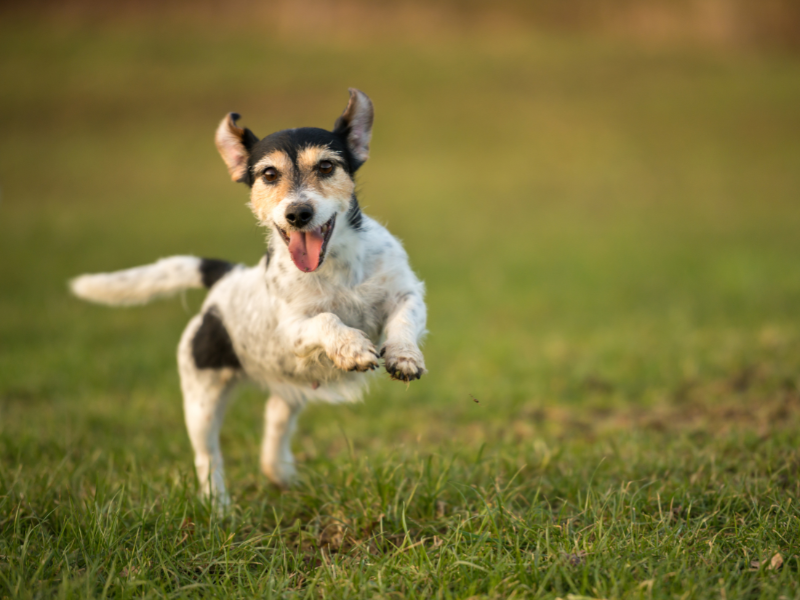
Back to blog articles
How to Proactively Protect Your Dog's Joints Against Arthritis
Supporting Your Dog's Joint Health and Mobility
The type of Arthritis that we most commonly talk about can also be referred to as Degenerative Joint Disease, or Osteoarthritis.
While it might sound like a senior dog issue, studies have shown that up to half of dogs in middle age (5-10 years old) may already have arthritis! Knowing this, pawrents should be alert about protecting their dog’s joints from a young age. Read on for daily considerations that can significantly reduce the risk of arthritis for your pup in their older years. 🐾🌟
Understanding the Risk Factors Any dog of any age can develop arthritis. However, these 3 specific factors have clearly been shown to increase arthritis risk:
Obesity
High intensity activities including repetitive high impact actions (jumping, high impact running)
Having conformational issues e.g. patella luxation, hip dysplasia. This may also be linked to a breed predisposition e.g. Chihuahuas are prone to patella luxation, Bulldogs, Labradors, and Golden Retrievers are some breeds prone to hip dysplasia
Remember, routine vet checks are an important part of staying on top of your dog's health. If you are worried about any health issues, check in with your vet!
What can you do? While arthritis cannot be reversed once it has happened, it can be delayed or, in some cases, prevented from happening or worsening.
Recommendation 1: Weight management
First, assess if your pup is overweight by checking their Body Condition Score
If they are, review their diet. Make a log of what they are being fed every day (including treats), and ask everyone in the household what they are feeding too! See where additional calories can be reduced. Speak to your vet about options for a lower calorie diet that they might recommend for your pup.
Have regular weigh ins. You should know your pup's weight and be aware if this is trending in a certain direction. During targeted weight loss, you should weigh your dog at least once a month.
Top tip: Be aware that desexing your male or female dog may lead to weight gain. This is because desexing leads to hormonal changes that affect the amount of calories that they require. This does not mean that desexing is a bad thing, just that dog owners should be ready to make adjustments to their pup's diet after desexing occurs.
Recommendation 2: Assess Daily Activities
For growing puppies, avoid intense exercise that cause stress to the joints e.g. hiking, using stairs
Avoid excessive jumping - even jumping off the sofa onto the floor is quite a big jump for small breed dogs and can cause stress to joint health - or activities that cause repetitive strain or jarring of joints
Avoid slippery floors - this is a big culprit in homes. Wooden floors or tiling is incredibly slippery for furry paws and causes daily, consistent low-level strain on joints, as well as increasing the risk of an acute injury such as a sprain. Putting down carpet or yoga mats where your dog usually walks and keep paw fur short to avoid excessive slipping.
Stick to a regular exercise or activity routine that your pup can manage, and avoid sudden changes in this (either increases or decreases). As with humans, dogs need time to build up fitness levels. For example, do not suddenly bring your dog on a long hike if they are not used to it, as it can lead to injuries that can damage joints.
Recommendation 3: Proactively using Joint Supplements and Building up Joint Health
Incorporating veterinarian-approved nutraceuticals into your pup's daily routine can help to protect their joints. Remember, this is a long term proactive protective strategy.
Omega-3s have been shown to be one of the most effective and beneficial ingredients for joints as a natural anti-inflammatory. Our O+ Omega Support health bites contain a high level of Omega-3s (EPA and DHA), are veterinarian approved and are an easy and tasty daily supplement to help to support your dog's joint health.
Glucosamine, Chondroitin, and Hyaluronic acid are building blocks that help to support the cartilage and joint fluid cushioning components of joints. Our tasty, veterinarian-approved J+M Joints and Mobility Support health bites contain these core ingredients to support your dog's joint health.
Proactive physiotherapy performed by a qualified canine or veterinary physiotherapist who has been recommended by your veterinarian is also a valuable strategy to protect your dog's joint health, strength, and mobility. Speak to your veterinarian about referral to a physiotherapist. Your veterinarian can work alongside your physiotherapist to support your dog's mobility and joint health.
Protecting your dog's joint health is a long term strategy. By implementing the recommendations above, you will be using a multi-faceted approach to give your dog the best chance of being mobile and active for the longest possible time! Have any questions about joint health in dogs? Feel free to email us at: [email protected] - we'd love to hear from you!
